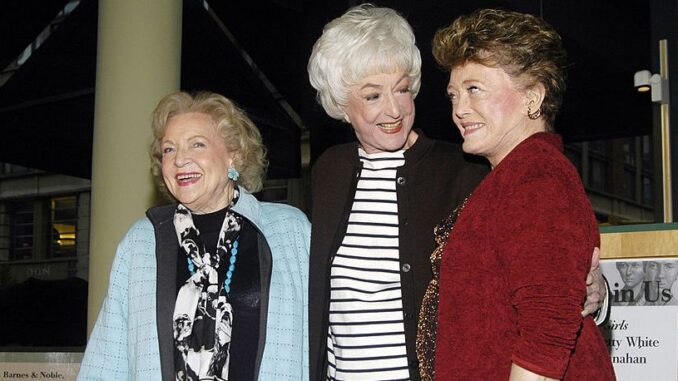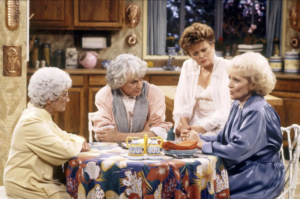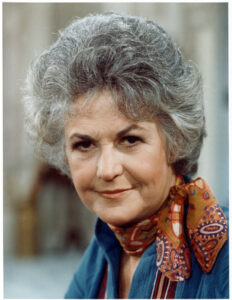
Since its debut in 1985, “The Golden Girls” continues to be a beloved series about the strong bonds between four women. While characters Dorothy, Rose, Blanche, and Sophia had their share of disagreements throughout the seven seasons, it appears that there was also some real-life discord between the actors, particularly Bea Arthur, who played Dorothy, and Betty White, who played Rose.

Stan Zimmerman, who wrote three episodes during the first season of “The Golden Girls,” didn’t personally witness Arthur and White clashing. “I never felt tension between the two,” Zimmerman explained in his memoir, “The Girls: From Golden to Gilmore.” “I only heard stories and recently learned, from producer Marsha Posner Williams on a podcast, that Bea thought Betty was two-faced.” Zimmerman believed Arthur valued authenticity in people. In contrast, he felt like White had more common ground with her character Sue Ann Nivens (from “The Mary Tyler Moore Show”) than her role as Rose. “More conniving than the innocent airhead from St. Olaf,” Zimmerman wrote.
Podcast interviews have previously added to the drama of a White/Arthur rift. On “The Originals” podcast in April 2021, Joel Thurm, a retired casting director, related a startling conversation he had with Arthur in 1999. “She called her the C-word. I mean, I heard that with my own ears,” he recalled. While anecdotes like these are disappointing to fans, the off-screen relationship between White and Arthur is more nuanced than it appears.
Arthur disapproved of White interacting with the audience

During an appearance on the “Out on the Lanai” podcast, Marsha Posner Williams gave additional insights into the relationship between Bea Arthur and Betty White. Williams co-produced 76 episodes of “The Golden Girls” during the first three seasons, and she believed it was primarily Arthur who had beef with White. “I don’t think Betty cared,” Williams theorized. Arthur had a theater background and White’s whole career was in TV, and they had vastly different approaches on set. After the cameras stopped rolling between scenes, “Betty would break character and go up to the audience and start chatting with them and Bea hated that,” Williams explained. The co-producer noted that Arthur’s tough, no-nonsense depiction of Dorothy matched her real-life persona. Williams also noted that Arthur didn’t like publicity, so she disapproved of White cracking jokes with the audience. However, despite any lack of real-life camaraderie, Williams observed that White and Arthur didn’t let it impact their work. “When that red light on the camera went on, there were no more consummate professionals than those women,” she asserted.
Matthew Saks, Arthur’s son, was also aware that his mom disliked White’s interactions with the studio audience. “It’s more about being focused or conserving your energy,” he informed The Hollywood Reporter. “It rubbed my mom the wrong way.” Saks also believed that Arthur subconsciously found it entertaining to have someone who was a target for her anger and that White fulfilled this role.
Bea Arthur and Betty White had their loving moments, too

According to Saks, Arthur’s son, Betty White and his mom also experienced times of closeness during their time working together on “The Golden Girls.” “They were friends. At one point they lived close enough that they would drive each other to work,” Saks told The Hollywood Reporter. Rue McClanahan, who played Blanche on the show, also corroborated White and Arthur’s bond, noting that Arthur always wanted White to join her for meals while they were working on set. Another source of closeness between White and Arthur was that they were both caring for ill parents during the show’s first season. After their mothers died around the same time, the two actors supported each other while they grieved.
Before White’s death at age 99, she took multiple opportunities to talk about how she felt about her co-stars. “Bea was not that fond of me,” White admitted to Joy Behar in 2011 (via CNN). “I don’t know what I ever did … but I loved Bea and I admired her.” Speaking at a TimesTalk around that same time, White hypothesized that it was her upbeat demeanor that occasionally got under Arthur’s skin. While White keenly felt Arthur’s ire, one on-set observer believed Arthur found it difficult to express more her positive emotions towards her castmate. “Bea had warmer feelings for [White] than she let on,” they explained to OK! “She just had trouble expressing them.”
